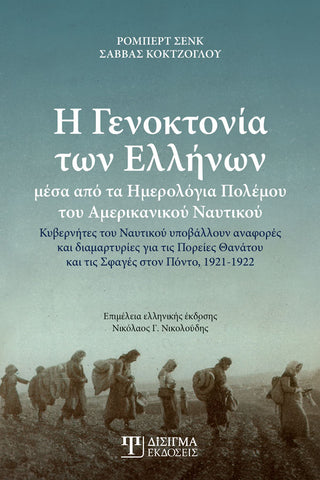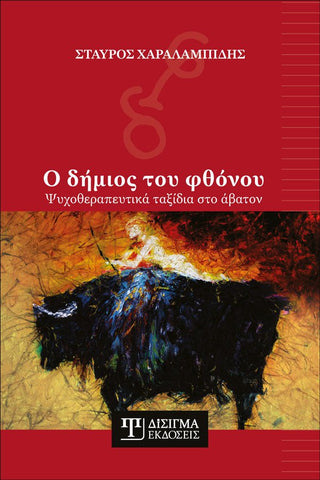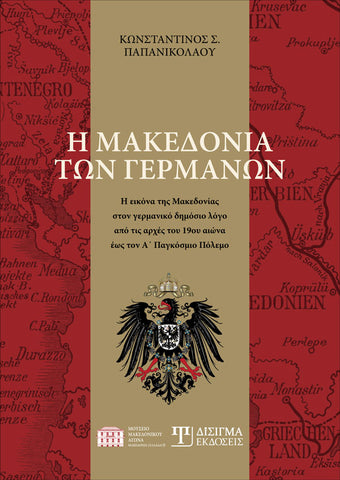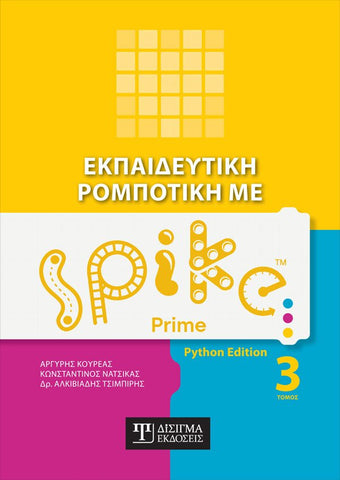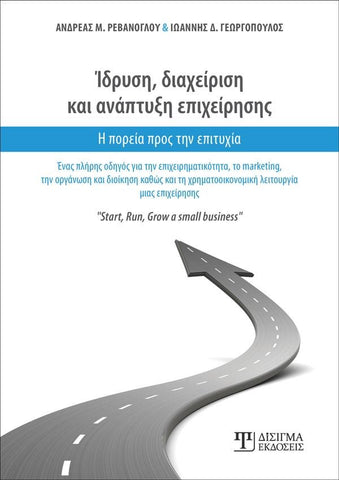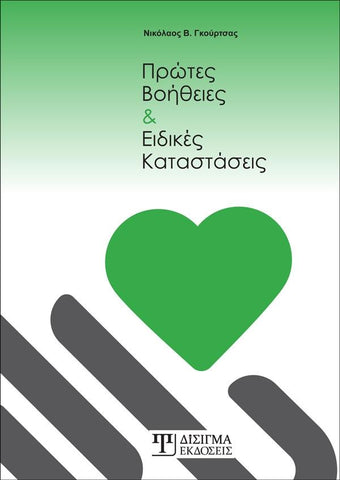
Academic English for Biology
Academic English for Biology
Το βιβλίο Ακαδημαϊκά Αγγλικά για Βιολογία (Academic English for Biology) είναι ειδικά σχεδιασμένο για φοιτητές που σχεδιάζουν να ξεκινήσουν ένα πανεπιστημιακό πρόγραμμα Βιολογίας στο οποίο το μέσο διδασκαλίας είναι η αγγλική γλώσσα. Στόχος του βιβλίου είναι να αναπτύξει τις γνώσεις σας σχετικά με τους ακαδημαϊκούς και επιστημονικούς κανόνες και να βελτιώσει τις δεξιότητές σας στους ακόλουθους τομείς:
- την ανάγνωση και κατανόηση άρθρων Βιολογίας
- την κατανόηση διαλέξεων Βιολογίας και του τρόπου καταγραφής σημειώσεων των κυρίως θεμάτων
- τη συγγραφή για διαφορετικά ακροατήρια και σκοπούς μέσα στον ίδιο κλάδο
- την αποτελεσματική συμμετοχή σας σε ακαδημαϊκά σεμινάρια και συζητήσεις
- την προετοιμασία και σχεδιασμό αποτελεσματικών επιστημονικών παρουσιάσεων
- τη βελτίωση του ακαδημαϊκού λεξιλογίου και των εμφανών χαρακτηριστικών γραμματικής
- τη βελτίωση των ακαδημαϊκών δεξιοτήτων γραφής και των ακαδημαϊκών συμβάσεων
- τη βελτίωση των ακαδημαϊκών δεξιοτήτων μελέτης όπως ο προγραμματισμός και η λήψη σημειώσεων
- τη βελτίωση της κριτικής σας αντίληψης και έκφρασης
- τη βελτίωση ανεξάρτητων ερευνητικών πρακτικών
Listening:
- Unit 01 | p16 Scientific Method Explanation
- Unit 01 | p44 Redox Reactions
- Unit 03 | p87 ATP & Respiration_ Crash Course Biologyc
- Unit 04 | p90 Cell Structure and Function
- Unit 04 | p105 Mitosis and Meiosis
- Unit 05 | p108 DNA Replication
- Unit 06 | p123 Isolating Plasmid DNA
- Unit 06 | p150 Report Feedback
- Unit 07 | p169 The different types of mutations, Biomolecules
- Unit 08 | Kickstarter Replaces Lights with Glowing Plants
1 Review of Scientific Method and Inorganic Chemistry for biologists
Themes
Science basics, units, quantities, abbreviations and symbols, steps in the scientific
method, atomic structure, chemical bonds, acids/ bases, redox reactions, types of
energy, thermodynamics’ laws
Academic presentation skills
Using visuals to enhance the impact of your presentation
Academic reading skills
Skimming and scanning
Academic vocabulary skills
Academic word lists and collocations
English for Chemistry skills
Reading a chemical formula
Note-taking skills
Linear style with abbreviations and symbols
2 Introduction to organic chemistry and key biomolecules
Themes
Functional groups, polymers, conformations, isomers, lipids, carbohydrates, protein
structure and function, Nucleic acids and base pairings, DNA/RNA comparison
Academic presentation skills
Making Comparisons in science: Venn diagrams
Academic vocabulary skills
Synonyms; Vocabulary use in context
Academic writing skills
Introduction to paraphrasing; using synonyms
Academic writing skills
Paragraph cohesion and coherence
Peer reviewing student sample paragraphs
3 Enzyme Biochemistry
Themes
Activation energy, substrates, inhibition and regulation of enzyme activity, factors
affecting enzyme function, glycolysis pathway, Krebs cycle
Note-taking skills
Lecture cues and signposting language: identifying moves in a lecture
Academic vocabulary skills
Word families
Confusing words
Adverbs: degree, opinion, frequency, manner
Academic writing skills
In-text citations and references; Why and how we use them
Introduction to formality and academic style
Note-taking practice
Lecture on respiration and ATP
Noticing (in)formality: Transition from informal to formal language
4 Cell Biology and Cell Division
Themes
Phospholipid bilayers, active and passive transport, nucleus, ribosome function,
microtubules and microfilaments, chloroplast.
The cell cycle, chromosome, and chromosome segregation, cytokinesis, stages in
meiosis
Academic presentation skills
Making analogies to enhance the impact of your presentation; Note-taking
Academic reading skills
Skimming (subheadings, titles, or topic sentences)
Academic vocabulary skills
Synonyms
5 DNA Replication Processes & Steps; Transcription & Translation
Themes
DNA replication, DNA polymerase, DNA’s leading and lagging strands, transcription of
mRNA, regulation of gene expression, intron and exon splicing, codons, translation of
mRNA to protein
Academic presentation skills
Using mind maps to organise ideas and concepts
Academic vocabulary skills
Word formation and use in context
Academic writing skills
Style: Avoiding wordiness
Accuracy: Subject-verb agreement
6 Experimental language in common biological techniques
Themes
DNA plasmids, restriction enzymes and ligase, electroporation, heat shock
transformation, bacterial transformation, recombinant DNA
Academic discussion skills
Expressing negative purpose
Note-taking practice
Introduction to Plasmids
Academic vocabulary skills
Laboratory equipment
Definitions/Confusing words in science
Academic writing skills
Style: Focusing on language of experimental data
Common pitfalls in scientific writing: ambiguity, personification, contractions, numerals
and phrasal verbs
Laboratory report structure
Constructing a hypothesis
Style: Scientific tables and graphs: Formatting
Peer-reviewing a student’s sample laboratory report
Note-taking practice
Following instructions and revising a manuscript after teacher feedback
Academic writing skills
Nominalisations in scientific writing
Summarising
Peer-Reviewing student sample summaries
Note-taking practice
Summary practice
Lecture on Meiosis
7 Genetics; Principles of heredity; Genetic Mutation
Themes
Allele properties, Mendel’s first and second laws, exceptions to simple dominance and
independent assortment, chromosomal linkage
Academic vocabulary
Inferring the meaning of new words from context
Style: Distinction between subject-specific and general academic words
Style: Avoiding negative statements: using prefixes or antonyms
Prepositions and nouns made up of prepositions or prepositional prefixes
Academic writing skills
Style: Phrasal verbs in science and formal writing
Verbs of reference/citations
Note-taking practice
Mutations
8 From Plant cell to Plant development
Themes
Plant cell structure, plant stem and leaf structures, shoot system growth, root
system, nitrogen, xylem and phloem, sporophytes, tropisms, seasonal growth cycles,
mechanisms in plant development
Academic presentation skills
Predicting what’s coming up in a lecture; presentation approaches
Academic vocabulary
Word formation and use in context
Compound words in biology
Common prefixes and suffixes
Academic writing skills
Style: Academic caution
Note-taking skills
Identifying key points in a lecture
Advances in Materials Science and Biology: Bioluminescence and “glow in the dark” plants
9 Ecology, Evolutionary change and Bioethics
Themes
Energy flow in an ecosystem, competition, population density, conservation biology,
biogeochemical cycling/ the theory of evolution, the Hardy-Weinberg equilibrium,
natural selection and adaptation, allopatric and sympatric speciation; Theories on the
origin of life on Earth
Academic vocabulary skills
Definitions and word usage in context
Academic writing skills
Paraphrasing strategies
Cause and effect devices as paraphrases tools
Cause and effect as a paraphrasing tool
Evaluative language
Favouring and unfavouring others’ views
Writing an argumentative essay
Peer-reviewing student samples
10 Animal diversity and development
Themes
Animal diversity, embryonic development in the early stages, gastrulation, hox genes,
cell fate, fate mapping
Academic vocabulary
Inferring the meaning of new words from context
Academic writing revision
Academic writing strategies
Avoiding wordiness
Academic writing skills
Genre analysis: Comparing style of informal sources of information to scholarly articles.
Rewriting an informal article so that it adheres to academic conventions
Academic vocabulary skills
Vocabulary Synonyms
Note-taking practice
Fate mapping
Glossary
Evaluation Checklist
Bibliography
Downloads
| File Type | File Name |
|---|---|

|
Περιεχόμενα |

|
Ενδεικτικό Κεφάλαιο |
| Συγγραφέας | Βιογραφικό |
|---|---|

|
Η Κάλλια Κατσαμποξάκη-Hodgetts (ΒΑ, MEd, PhD) διδάσκει το μάθημα «Κοινωνικός και Ψηφιακός Γραμματισμός: Διδακτική της Πολυτροπικότητας στις Φυσικές Επιστήμες» στο πλαίσιο του πιστοποιητικού παιδαγωγικής και διδακτικής επάρκειας φοιτητών/-τριών στη Σχολή Θετικών και Τεχνολογικών Επιστημών. Διδάσκει, επίσης, «Τεχνική Συγγραφή και Αγγλική Ορολογία για Ειδικούς Ακαδημαϊκούς Σκοπούς» στο Πανεπιστήμιο Κρήτης, από το 2001, και έχει συγγράψει τρία βιβλία μαθημάτων EAP/ESP («Αγγλικά για Χημεία EAP», «Ακαδημαϊκά Αγγλικά για φοιτητές Βιολογίας» και «Ακαδημαϊκά Αγγλικά για Μαθηματικά») τα οποία διανέμονται σε είκοσι τμήματα ελληνικών ΑΕΙ. Από το 2019, συμμετέχει στον συντονισμό της ανάπτυξης του διδακτικού προσωπικού μέσω της πρωτοβουλίας «Εκπαίδευση των Εκπαιδευτών [TOTT]» στο Πανεπιστήμιο Κρήτης και από το 2020 εργάζεται ως συντονίστρια του Κέντρου Διδασκαλίας και Μάθησης TotT, με σκοπό την Παιδαγωγική Ανάπτυξη του Ακαδημαϊκού προσωπικού του Πανεπιστημίου Κρήτης [https://tott.uoc.gr]. Ως συντονίστρια WP5 σε θέματα εκπαίδευσης στο Πρόγραμμα INGENIUM (μία ευρωπαϊκή συμμαχία δέκα πανεπιστημίων) και ως συντονίστρια WP3/ερευνήτρια/συγγραφέας εκπαιδευτικού υλικού για την ανάπτυξη ακαδημαϊκού προσωπικού σε θέματα φοιτητο-κεντρικής και συμπεριληπτικής παιδαγωγικής στο πρόγραμμα Erasmus Plus HighEd COALITION (Coaching Academics as Learners in Optimal Inclusive Networks), ενδιαφέρεται για την Επιστήμη της ενεργού εμπλοκής φοιτητών/-τριών (Scholarship of Student Engagement), τις παιδαγωγικές προσεγγίσεις με επίκεντρο τον/την φοιτητή-τρια χωρίς αποκλεισμούς και την ανάπτυξη των εκπαιδευτικών στην τριτοβάθμια εκπαίδευση. Τα ερευνητικά ενδιαφέροντά της περιλαμβάνουν, επίσης, την παιδαγωγική των κειμενικών ή πολυτροπικών ειδών και τον κριτικό ψηφιακό ακαδημαϊκό γραμματισμό μέσα από τις τρέχουσες διδακτικές πρακτικές. Η διδακτορική της διατριβή στο Πανεπιστήμιο Zaragoza (υπό την επίβλεψη της Maria-Jose Luzon) έχει θέμα «Ψηφιακή καινοτομία σε διαδικτυακά άρθρα στον τομέα της Χημείας: Διδακτικές προεκτάσεις κειμενικών ή πολυτροπικών ειδών και τους νέους ακαδημαϊκούς και ψηφιακούς γραμματισμούς». Είναι, επίσης, ιδρυτικό μέλος και μέλος της επιστημονικής επιτροπής του διεθνούς συνεδρίου «EAPCRETE» (που πραγματοποιείται κάθε δύο χρόνια, https://eapcrete.wordpress.com) και του διεθνούς συνεδρίου με τίτλο «Η Εξέλιξη της Πανεπιστημιακής Διδασκαλίας» (2023) στο Πανεπιστήμιο Κρήτης. |






